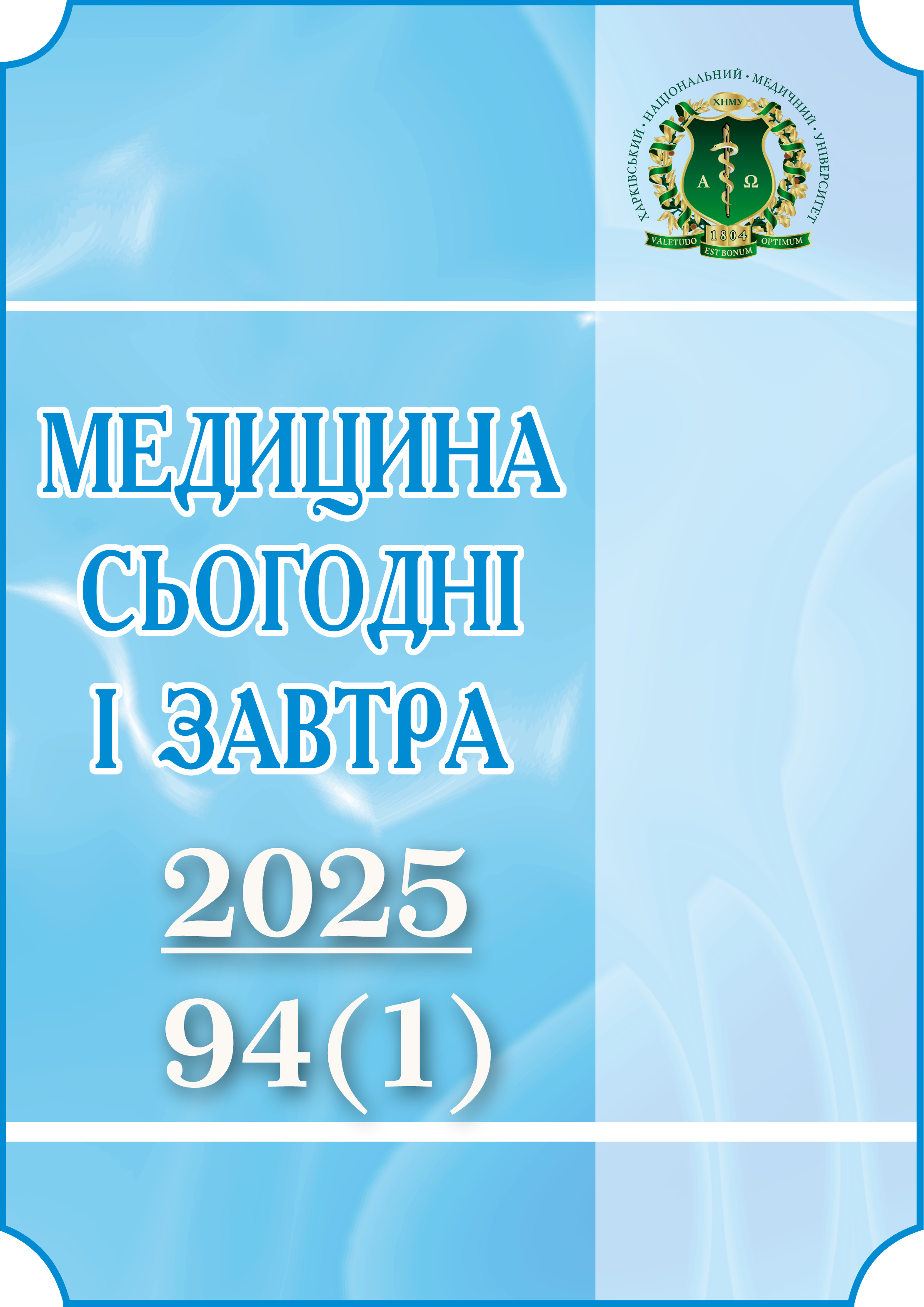Abstract
The article continues the series of lectures by the outstanding Kharkiv scientist with a world name, Vasyl Yakovych Danylevskyi. In it, the scientist notes that in the second half of the last century, the doctor's horizons expanded significantly with the realization of the need for social service in medicine. In order to take into account, the patient's social ties for his diagnosis and treatment, the doctor needs knowledge in the field of sociology, psychology, economics, other sciences and fields of knowledge. A large crowd is dangerous if its psyche is set on destruction. The doctor's public service also concerns epidemiology, occupational hygiene, forensic examination, school hygiene, social psychology and psychiatry. The doctor's competence is necessary and can be useful for assessing art, literature, the adequacy of worldview and religious views. Psychohygiene, according to the scientist, can prevent symptoms of degeneration in the field of fine arts and literature before they affect the mental state of unbalanced natures and immature intellects. For some people, the convenience and comfort of city life led to moral weakness and degradation, and social bustle to a psychopathic personality. People with mental disorders seek everything very exciting and irritating in works of literature and art. The usual level of pleasure in the refined is already hardly acceptable for them. In contrast to the influence of the urban "superculture", a doctor can recommend restoring a person's tolerance to the social environment and his recovery through physical labor, strict discipline, endurance, and patience in rural conditions. The scientist's ideas, show the connections between physiological processes and mental functions, emotions and social behavior, describe the reasons and forms of the doctor's social service. The lecture substantiates duties of every doctor to be a social hygienist in matters of disease prevention.
Keywords: social psychology, evolutionary psychology, art, personality.
Archived: https://doi.org/10.5281/zenodo.15072660
References
Danylevsky VYa. Memories of an old professor. (Autobiography). Ryabchenko VV (compiler). Kharkiv: Rarities of Ukraine; 2018. 356 p.
Beletska OM (compiler). An example of service: a collection of works by V.Ya. Danylevsky and materials about his activities. Kharkiv: "Fort" Publishing House; 2007. 528 p. [In Ukrainian].
Biletska OM, Markovska OV, Shevchenko АS, Latohuz SI, Polonnik IA, Sushetska AS, Astapova IaV, Hurbych OS. Vasyl Yakovych Danylevskyi's lecture on health and illness (1921): annotated translation. Medicine Today and Tomorrow. 2024;93(3):92-103. DOI: 10.35339/msz.2024.93.3.bms. [In Ukrainian].
Biletska OM, Markovska OV, Shevchenko АS, Latohuz SI, Manucharyan SV, Voroshylova YeI, Lutsenko EYu, Polonnik IA. Vasyl Yakovych Danylevskyi's lecture on science, university and faculty selection (1921): annotated translation. Experimental and Clinical Medicine. 2024;93(3):86-97. DOI: 10.35339/ekm.2024.93.3.bms. [In Ukrainian].
Biletska OM, Korneyko IV, Markovska OV, Shevchenko АS, Aleksanian KA, Cherkova NV, Dushyk LM. Vasyl Yakovych Danylevskyi's lecture on the doctor, the patient, and the successes of medicine (1921): annotated translation. Inter Collegas. 2024;11(3):53-9. DOI: 10.35339/ic.11.3.bkm.
Danylevskyi VYa. A doctor, his vocation and education. Introductory readings. Kharkiv: All-Ukrainian State Publishing House; 1921. 416 p.
Plautus TM. Asinaria [Donkey Comedy]. The Latin Library [Internet]. Available at: https://www.thelatinlibrary.com/plautus/asinaria.shtml [accessed 01 Mar 2025].
Damasio A. Descartes' Error: Emotion, Reason, and the Human Brain. New York: Putnam; 1994. 312 p.
Stanford Prison Experiment [Internet]. Available at: https://www.prisonexp.org [accessed 01 Mar 2025].
Zimbardo PG. The Stanford Prison Experiment: A Simulation Study of the Psychology of Imprisonment. Stanford: Stanford University; 1971.
Sapolsky R. Behave: The Biology of Humans at Our Best and Worst. New York: Penguin Press; 2017. 800 p.
Cacioppo JT, Patrick W. Loneliness: Human Nature and the Need for Social Connection. New York: W.W. Norton & Company; 2008. 352 p.
Singer T, Bolz M, editors. Compassion: Bridging Practice and Science. Munich: Max Planck Society; 2013. 512 p.
Harari YN. Sapiens: A Brief History of Humankind. London: Harvill Secker; 2014. 512 p.
Harari YN. Homo Deus: A Brief History of Tomorrow. London: Harvill Secker; 2016. 464 p.
Harari YN. 21 Lessons for the 21st Century. London: Jonathan Cape; 2018. 368 p.
Pinker S. How the Mind Works. New York: W.W. Norton & Company; 1997. 660 p.
Shevchenko AS, Shevchenko VV, Brown GW. The preventive direction of modern theories of health and health-saving in public health and education. Inter Collegas. 2024;11(1):45-51. DOI: 10.35339/ic.11.1.ssb.
Heera HS, Najar SSH, Shevchenko АS, Lytvynenko OYu. Valeological relationship of physical workability with health indicators. Inter Collegas. 2023;10(1):33-36. DOI: 10.35339/ic.10.1.hns.

This work is licensed under a Creative Commons Attribution-NonCommercial-ShareAlike 4.0 International License.

